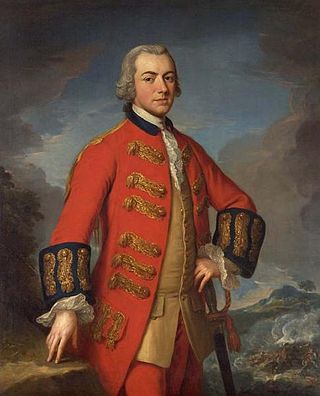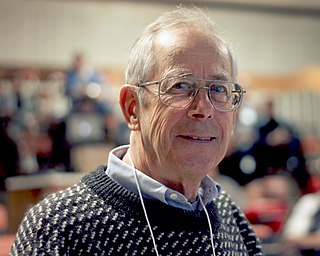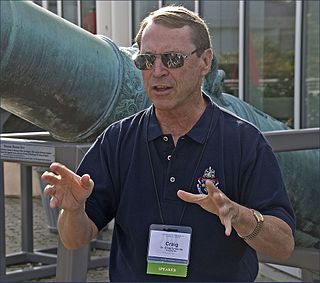Related Research Articles

William Howe, 5th Viscount Howe,, was a British Army officer who rose to become Commander-in-Chief of British land forces in the Colonies during the American War of Independence. Howe was one of three brothers who had distinguished military careers. In historiography of the American war he is usually referred to as Sir William Howe to distinguish him from his brother Richard, who was 4th Viscount Howe at that time.

General Sir Henry Clinton, KB was a British Army officer and politician who sat in the House of Commons between 1772 and 1795. He is best known for his service as a general during the American War of Independence. He arrived in Boston in May 1775 and was the British Commander-in-Chief in America from 1778 to 1782. He was a Member of Parliament for many years due to the influence of his cousin Henry Pelham-Clinton, 2nd Duke of Newcastle. Late in life, he was named Governor of Gibraltar, but he died before assuming the post.

Henry Steele Commager was an American historian. As one of the most active and prolific liberal intellectuals of his time, with 40 books and 700 essays and reviews, he helped define modern liberalism in the United States.

Samuel Eliot Morison was an American historian noted for his works of maritime history and American history that were both authoritative and popular. He received his Ph.D. from Harvard University in 1912, and taught history at the university for 40 years. He won Pulitzer Prizes for Admiral of the Ocean Sea (1942), a biography of Christopher Columbus, and John Paul Jones: A Sailor's Biography (1959). In 1942, he was commissioned to write a history of United States naval operations in World War II, which was published in 15 volumes between 1947 and 1962. Morison wrote the popular Oxford History of the American People (1965), and co-authored the classic textbook The Growth of the American Republic (1930) with Henry Steele Commager.

Phillip James Edwin Peebles is a Canadian-American astrophysicist, astronomer, and theoretical cosmologist who was Albert Einstein Professor in Science, emeritus, at Princeton University. He is widely regarded as one of the world's leading theoretical cosmologists in the period since 1970, with major theoretical contributions to primordial nucleosynthesis, dark matter, the cosmic microwave background, and structure formation.

The Society for Military History is a United States–based international organization of scholars who research, write, and teach military history of all time periods and places. It includes naval history, air power history, and studies of technology, ideas, and homefronts. It publishes the quarterly refereed The Journal of Military History.

Robert M. Citino is an American military historian and the Samuel Zemurray Stone Senior Historian at the National WWII Museum. He is an authority on modern German military history, with an emphasis on World War II and the German influence upon modern operational doctrine.
Karl Jack Bauer, was one of the founders of the North American Society for Oceanic History (NASOH) and a well-known naval historian. NASOH's K. Jack Bauer Award is named in his memory.
William Edward Leuchtenburg is an American historian. He is the William Rand Kenan Jr. Professor Emeritus of History at the University of North Carolina at Chapel Hill, and a leading scholar of the life and career of Franklin Delano Roosevelt.

John Albert Lynn is a military historian who has written on a wide variety of topics in his field, with an emphasis on early modern Europe.

The Staten Island Peace Conference was a brief informal diplomatic conference held between representatives of the British Crown and its rebellious North American colonies in the hope of bringing a rapid end to the nascent American Revolution. The conference took place on September 11, 1776, a few days after the British had captured Long Island and less than three months after the formal American Declaration of Independence. The conference was held at Billop Manor, the residence of loyalist Colonel Christopher Billop, on Staten Island, New York. The participants were the British Admiral Lord Richard Howe, and members of the Second Continental Congress John Adams, Benjamin Franklin, and Edward Rutledge.
Edward M. Coffman was a military historian and University of Wisconsin-Madison professor emeritus.

Craig Lee Symonds was the Distinguished Visiting Ernest J. King Professor of Maritime History for the academic years 2017–2020 at the U.S. Naval War College in Newport, Rhode Island. He is also Professor Emeritus at the U. S. Naval Academy, where he served as chairman of the history department. He is a distinguished historian of the American Civil War and maritime history. His book Lincoln and His Admirals received the Lincoln Prize. His book Neptune: The Allied Invasion of Europe and the D-Day Landings was the 2015 recipient of the Samuel Eliot Morison Award for Naval Literature.
Norman Friedman is an American author, analyst, strategist, and historian. He has written over 30 books and numerous articles on naval and other military matters, has worked for the U.S. Navy and Marine Corps, and has appeared on television programs including PBS, the Discovery Channel, C-SPAN, and National Geographic.
Allan R. Millett is a historian and a retired colonel in U.S. Marine Corps Reserve. He is known for his works on the Korean War, among other military topics.
Ronald Harvey Spector is an American military historian. He is a professor at George Washington University.

Robin David Stewart Higham was a British-American historian, specializing in aerospace and military history, who also served as a pilot with the Royal Canadian Air Force during World War II.

Edward Kennard RandFBA, known widely as E.K. Rand or to his peers as EKR, was an American classicist and medievalist. He served as the Pope Professor of Latin at Harvard University from 1901 until 1942, during which period he was also the Sather Professor at the University of California, Berkeley, for two terms. Rand is best known for his 1928 work, Founders of the Middle Ages.
Robert Allan Doughty is an American military historian and retired United States Army officer.
References
- ↑ "Guide to the Ira Gruber Academic Career Papers UA 204". Texas Archival Resources Online. Retrieved 27 October 2014.
- ↑ "Curriculum Vitae (Ira D. Gruber) [as of November 2013]" (PDF). Rice University [History department]. November 2013. Archived from the original (PDF) on 26 December 2014. Retrieved 29 April 2020.
- ↑ "Guide to the Ira Gruber Academic Career Papers UA 204". Texas Archival Resources Online. Retrieved 27 October 2014.
- ↑ "Ira D. Gruber". Rice University. Archived from the original on 16 October 2014. Retrieved 27 October 2014.
- ↑ "Guide to the Ira Gruber Academic Career Papers UA 204". Texas Archival Resources Online. Retrieved 27 October 2014.
- ↑ "Historical Winners of the George R. Brown Award". Rice University. Archived from the original on 27 October 2014. Retrieved 27 October 2014.
- ↑ "The Edwin H. Simmons Award". Society for Military History. Retrieved 27 October 2014.
- ↑ "Samuel Eliot Morison Prize". Society for Military History. Retrieved 27 October 2014.